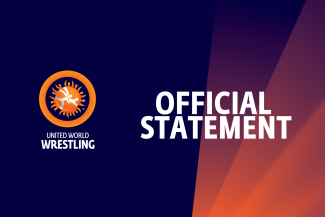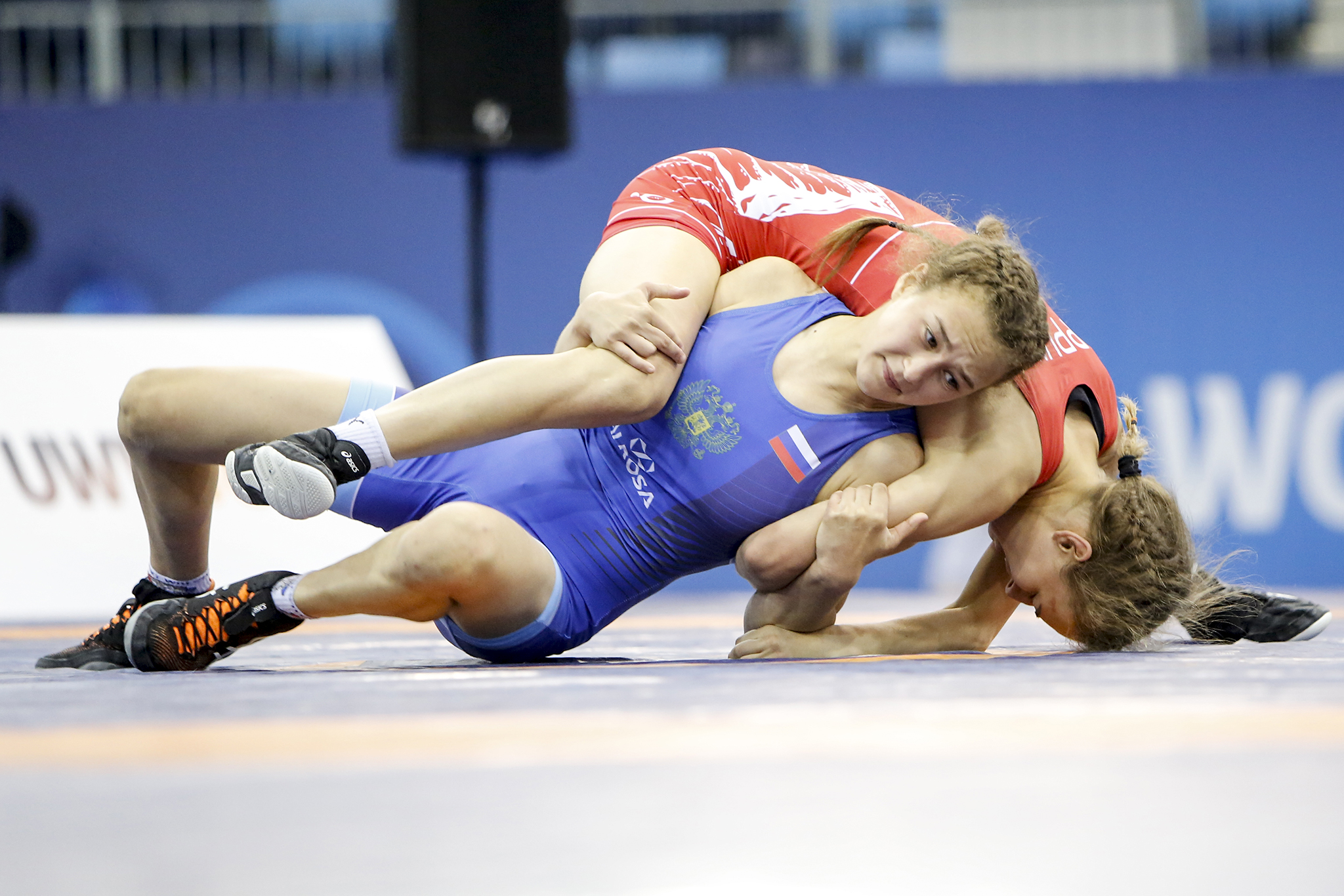UWW President Lalovic Praises Tokyo 2020 Organizing Committee, IOC
Sunday, August 1, 2021 - 07:55 By United World Wrestling Press

CHIBA, Japan (August 1) --- United World Wrestling president and International Olympic Committee Executive Board member Nenad Lalovic Sunday hailed the organizing committee at the Tokyo Olympic Games for conducting the mega event despite the setbacks because of COVID-19.
Lalovic was speaking the press conference on the first day of wrestling ,which began Sunday at the Makuhari Messe in Chiba, Japan.
"Welcome to the Olympic Games," Lalovic said. "The Olympic tournament is extremely well organized. It's impossible to compare [the organization in Rio and now in Tokyo] because now we are in a situation where are living alone for more than a year and a half. More or less imprisoned by the pandemic. It is a huge effort to organize the Olympic Games under such conditions. I congratulate the organizers, the Japanese government, the IOC and all involved in this process."
The Tokyo Games, originally scheduled to be held from July 24 to August 9 in 2020 were postponed to 2021 due to the outbreak of COVID-19 around the world. Lalovic said that IOC was determined to have the Games under any conditions.
"A year and few months ago we decided at the IOC session to have the Games under any conditions and that's what we have. We have to adapt to this and behave accordingly. Then we will have a successful Games," he said.
As wrestling began at the Games, Lalovic said that the sport has been improving constantly and the action in the first session in Chiba was a proof of that.
"As you saw everything went very well in the first session. Results are quite interesting. Some are unexpected, some are expected. But this is what makes our sport interesting," he said.
At Greco-Roman 130kg, Mijain LOPEZ (CUB) moved closed to becoming the first male wrestler to win four gold medals as he reached the semifinal with ease on Sunday. He will take on Rio Olympic silver medalist Riza KAYAALP (TUR) in the semifinal.
Lalovic was of the opinion that if Lopez can achieve the rare feat it will be a huge effort from the veteran 38-year-old wrestler and a new superstar will be born for the sport.
"He would be the first male wrestler to have that number," he said. "We already have ICHO Kaori (JPN) who has four gold medals. So finally, one man will equal one woman. This is really great. The way he wrestled today encouraged us to think that this is possible. This is a huge effort. He is not the youngest wrestler here, probably the eldest, but definitely he is in very good form. I saw his matches. That would be a new-born superstar of wrestling.”
Icho won four gold medals at the Olympics from Athens to Rio. Now Lopez can equal her if he wins the gold Monday. Extending his thought about the growth of women's wrestling, Lalovic said that wrestlers Sunday showed that it is on its way to become as popular as the men's wrestling.
“In women's wrestling, as an example, the matches we saw today were fantastic, really fantastic, scoring so many technical points," he said. "Women’s wrestling becomes more and more popular and will soon be as popular as men’s wrestling especially with fights and techniques.
"Don't forget that these women are the heavyweights. They are not the fastest ones and even then it's spectacular. We in the federation all have full confidence that we are on the right track. Especially the national federations and NOCs by supporting and backing up women’s wrestling to the maximum. It has to be done, for sure. We saw the reasons this morning.”
He also talked about the opposition to the Games from the Japanese population but the IOC member said that the Games face challenges every edition but this time, going ahead with the event was the best way to fight the pandemic.
"There are always opponents to the Olympic Games everywhere," he said. "Especially finding many reasons to not have them. I don’t know if you remember, but in Beijing (2008), we all had to die from pollution. In London, we had been threatened that we would explode together underground. In Rio, we should all have been killed by the Zika mosquito. But it didn’t happen.
“Today we stand together with the media, athletes, National Olympic Committees and countries taking part in this Games, to fight the pandemic. This is the best way: by having the Olympics.
“You mention also the opposition in Japan. I remember there were 350,000 digital signatures against the Games. May I remind you that in 2013 when we had the crisis [when wrestling was on the verge of being dropped from Olympic Games programme by IOC), the Japanese Wrestling Federation collected more than one million physical signatures, and I insist on the word physical because people really came and signed. Digital signatures are a little bit easier.
“Certainly that is a politically difficult situation, all the pressure from the opposition and so on, but at the end, all of this has been forgotten when the Games were open and the first medals awarded. All that is behind us and we want to finish the Olympic Games in a bright way. I think nothing can stop us."
Wrestling had to fight for its spot in the Games program after IOC announced that it would be dropped after the Rio Games. But wrestling saw a host of changes and support poured in from around the world.
The sport was finally added to the next two cycles of the Games and Lalovic said that the improvement will continue going into the Paris Olympics.
“We have some ideas about what can be the improvements. We will analyze at the technical commission everything that has been shown the last two or three years since we adopted new rules. There may be some changes or improvements. But it has to be analyzed very, very seriously because I think we already achieved something different.
“Probably some small adjustments must be done. But this will be nothing revolutionary until we see that we are not progressing. At this moment, I am absolutely sure that we are progressing in every way. The approach to wrestling is totally different with those rules. You see aggression in Greco-Roman wrestling, which we didn’t have before.”



Share your thoughts.
Comments